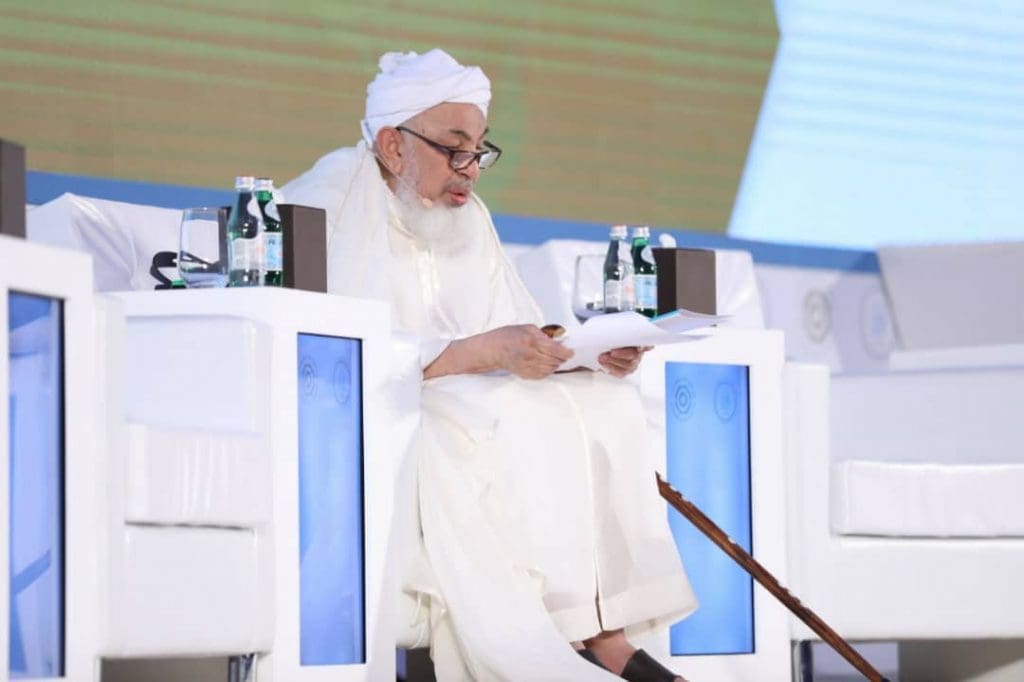Sheikh Abdallah Ibn Bayyah, often opposed to the famous Egyptian theologian Youssef al-Qaradawi is a key figure in the fight against religious extremism in the Muslim world.
By Mohamed Moctar
The comparison with al-Qaradawi, the former president of the International Union of Muslim Scholars (UISM), speaks volumes about Ibn Bayyah’s fame.
The 85-year-old Mauritanian has served as vice-president of the UISM.
But because of his fundamental differences with al-Qaradawi over the appropriateness of jihad, the sheikh (a man respected for his age and especially his knowledge) eventually resigned from his post.
It was at this time that he began his intellectual struggle against religious extremism.
He unintentionally became a valuable ally of the West, itself a prime target for extremists.
Moreover, Ibn Bayyah was received by many leaders of the world’s greatest nations.
He comes from a Sufi family in the eastern part of the Islamic Republic of Mauritania.
Naturally, during his childhood, studies of the Koran and Islamic sciences were the mainstay of his basic education.
Thanks to his immense knowledge in the religious field, the scholar forces respect beyond the borders of his country.
Combining the spiritual and the temporal, Sheikh Abdallah Ibn Bayyah joined the government of Moctar Ould Daddah, the very first president of Mauritania.
In 1978, a coup d’état forced him into exile in Saudi Arabia.
In this cradle of Islam, he broadened his range of skills before taking up the teaching profession.
Sheikh Abdullah Ibn Bayyah is currently head of the Forum for the Promotion of Peace in Muslim Societies, based in Saudi Arabia.
Also president of the United Arab Emirates Council for the Fatwa, the Mauritanian scholar has received numerous international awards and medals.
Georgetown University (USA) lists him among the 50 most influential Muslim personalities in the world for the period 2009-2016.
Ibn Bayyah is “a repository of morality, tolerance, modesty and humility,” said Abdellahi Ould Mohamedouna, a collaborator of the Sheikh in the coordination of preaching and promotion of the values of peace in the world.
Meeting in Nouakchott, he maintained that his model never ceases to reaffirm that “sincerity, uprightness, good behaviour, respect for values and the fight against fraud and imposture together represent good morals.”
In Mauritania, his native country, the venerable man of God organizes an annual international forum where the majority of participants come from sub-Saharan Africa.
This year’s edition, held a few days ago in Nouakchott, was marked by a strong plea for the fight against terrorism and religious extremism, two scourges that are spreading in the Sahel-Saharan zone.
The speakers at the forum were unanimous about the role of Ibn Bayyah in spreading the discourse of peace and harmony among all human beings, regardless of their religion, colour, and language.
The forum was also an opportunity to discuss the role of Bayyah in the fight against terrorism.
According to the Mauritanian theologian Derdiri, his compatriot is “a renovator carrying the torch of peace.”
He said moreover, Sheikh Abdullah Ibn Bayyah “devotes all his strength to the salvation of humanity so that it may live in peace and security.”
MOO/id/te/lb/as/APA


